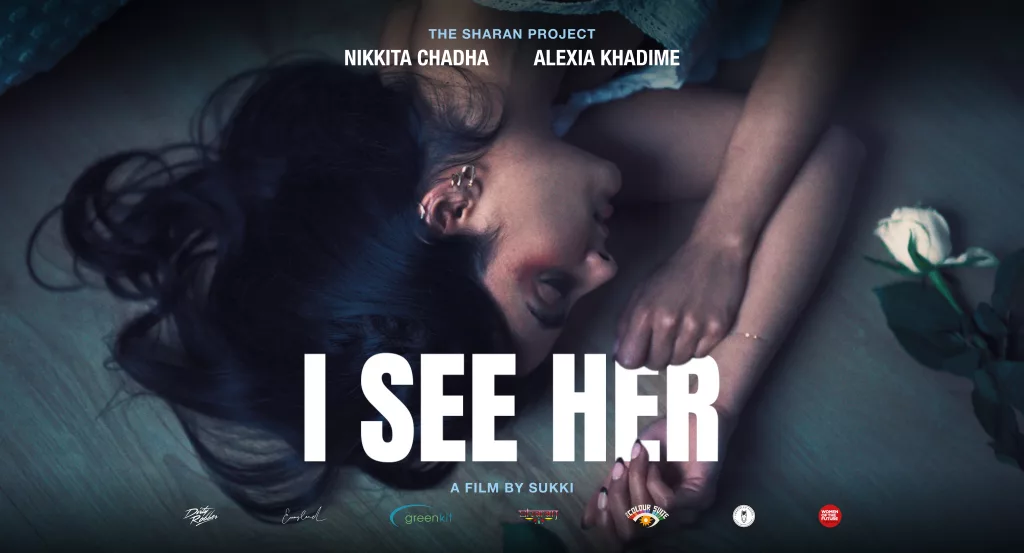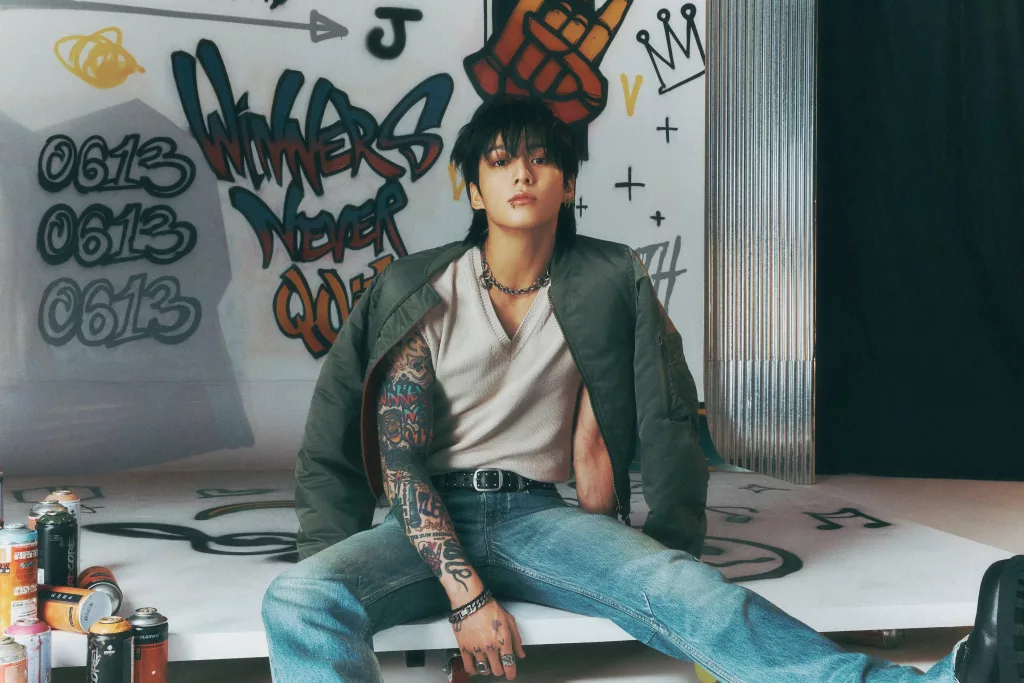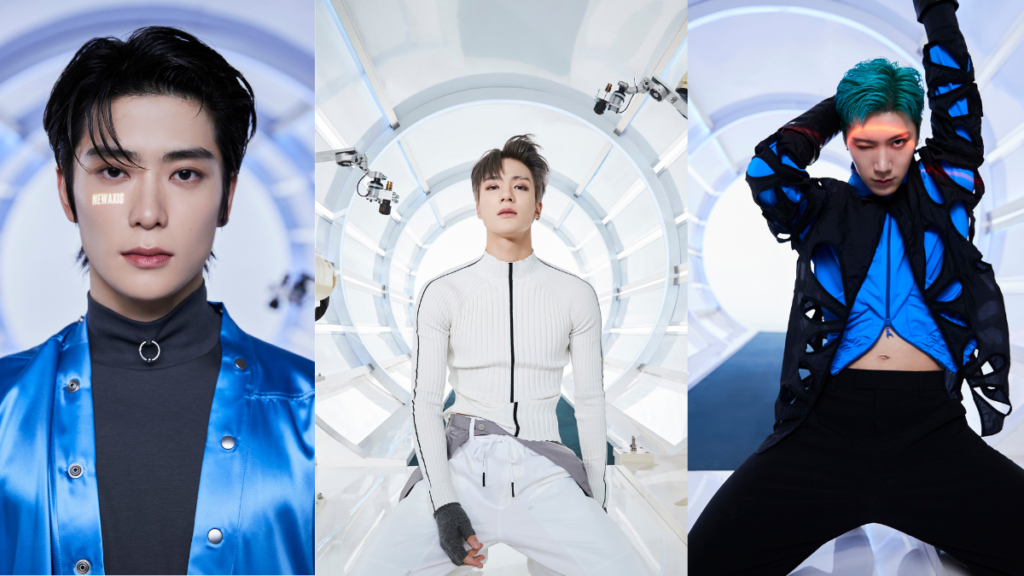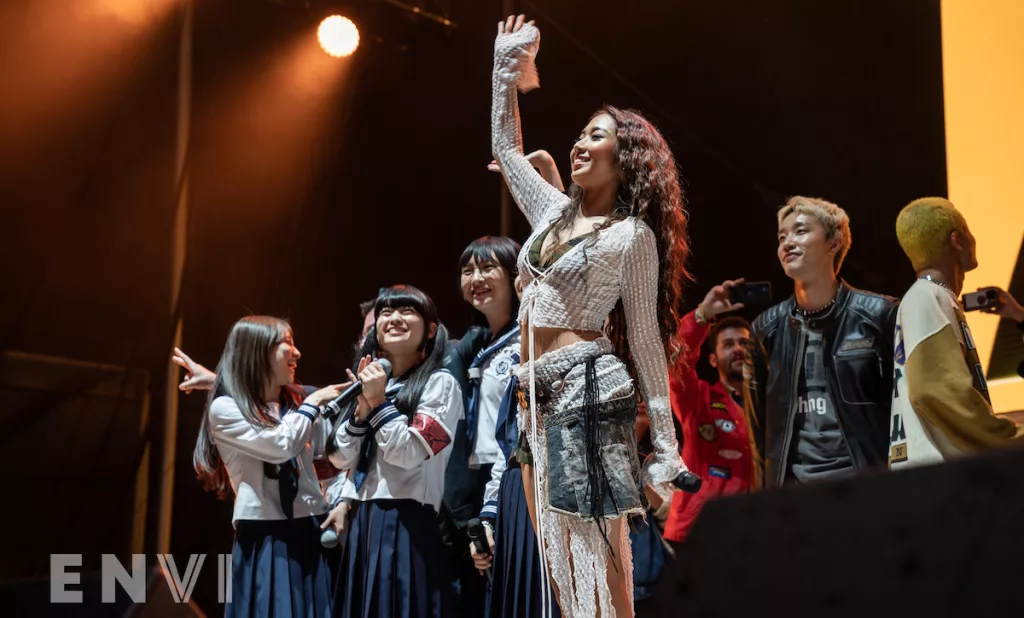SUKKI Sheds Light on Domestic Abuse Within South Asian Communities in “I See Her”

SUKKI is a multifaceted individual known for her roles as a writer-director and a dedicated humanitarian. She’s earned recognition on a global scale for her unyielding commitment to women’s rights, receiving accolades such as the Generation T Award, nominations for The Asian Women of Achievement Awards, Women of the Future Awards, and the prestigious United Nations Women’s HeForShe Impact Award. SUKKI’s impact extends further serving as the Global Ambassador for UK-based charity, The Sharan Project, and participating in The Women of the Future international program.
In a significant step forward, SUKKI has directed the compelling film “I See Her.” This short film was officially selected for the BAFTA-and BIFA-qualifying festival, The British Urban Film Festival. The film is grounded in real-life stories of South Asian women trapped in forced marriages and survivors of domestic abuse. It sheds light on the crucial roles of bystanders, the need for public awareness and empathy, and access to support resources.
In an exclusive online interview with EnVi, SUKKI discusses the pressing matter of identifying and addressing abuse against South Asian women and girls, her advocacy for this critical cause, and her creative direction of the debut film.
SUKKI’s Story
SUKKI hails from a culturally diverse background, with an Indian Singaporean father and a British mother deeply rooted in religious tradition. Raised within the confines of a conservative upbringing, her artistic inclinations clashed with her father’s strong desire for her to pursue a medical career.
Succumbing to family pressures initially, SUKKI eventually broke free from cultural repression and discovered her passion for dance and burlesque in Singapore, using it as a means to reclaim her identity. Her journey initially took her into the entertainment industry, but the pandemic-induced career break gave her the insight to shift her focus. Now, SUKKI’s dedicating herself to empowering women like her to shine and challenge their cultural norms.
SUKKI started her career as a writer and was invited last year to participate as a social media influencer in a campaign against abuse targeting women and girls. This initiative aligned with International Violence Month in the U.S. and International Domestic Abuse Awareness Month worldwide. Recognizing the urgency of the issue, particularly in the wake of the pandemic, she decided to take a hands-on approach and created a film called “I See Her” with a strong call to action.
Collaborating with the Sharan Project, a charity dedicated to aiding disowned or forced-married South Asian women, SUKKI ensured her work had real impact. The overwhelming support and volunteerism she received in support of this endeavor have made her realize the power of creating heartfelt, purposeful content.
Subject in Frame
The film, which serves as a charitable project under the campaign ‘“Enough,” to stop the abuse of women and girls, is a collaborative endeavor that operates without external funding. As a member of the global network, The Women of the Future Program, SUKKI leveraged her connections within the program to cast characters and roles, reaching out to the network’s founder.
Drawing on emerging South Asian talent in the UK, particularly influenced by the post-Marvel landscape, SUKKI found the ideal actors for the roles of Meena and Sam, alongside a diverse ensemble cast. Notably, SUKKI’s commitment extended to ensuring that a white actress played one of the friend’s roles in her film, emphasizing the importance of inclusivity and avoiding exclusion when narrating stories of diverse backgrounds.
In her commitment to addressing abuse through her film, SUKKI prioritized authenticity and empowerment, viewing the project as a potent tool to encourage the public to become active bystanders. She emphasized that the film’s aim was to inspire viewers to stand up against abuse and positively impact the lives of women and girls.
A key decision in maintaining authenticity was casting Kalbir, a real-life survivor, as a character who communicates through sign language, using the campaign’s name, “Enough.” SUKKI believed that including survivors in the film added essential authenticity to the narrative, emphasizing the importance of representing the stories of the people the film was about.
SUKKI’s collaborative work with her cinematographer was driven by her deep emotional connection to storytelling. She explained that her shooting style drew from her personal experiences of dissociation during intense emotional pain, shaping her perspective as she observed humanity through a lens of maternal love and heartbreak.
Her primary goal was to evoke genuine emotions in her audience, relying on music and acting to convey these feelings authentically. SUKKI aimed to capture the prevalent sense of disconnection in today’s world, even in a highly interconnected age. Her deliberate choice not to reveal the abuser’s face and her emphasis on depicting emotional barriers through symbolism, such as the physical fence in her film, highlighted her commitment to empowering and safeguarding the survivors’ stories through her cinematography techniques.
When Words Fail, Music Speaks
With a strong motivation behind creating her film without dialogue, SUKKI’s vision for “I See Her” is to be universally relatable, crossing cultural and language barriers to address the global issue of abuse, especially within marginalized communities. This approach wasn’t new to her, as she had previously incorporated non-spoken shorts in her burlesque performances.
SUKKI believed that by relying on music and visuals without language, her film could communicate the message more effectively, eliminating any linguistic barriers and fostering a deeper connection to empower and assist those affected by abuse internationally.
SUKKI’s profound connection to music is a central aspect of her life, influencing her emotions throughout the day and shaping her experiences like a personal soundtrack. She couldn’t imagine living without music, as it has the power to both reflect and mold her moods. The significance of music in her life extended to the heart and soul of her film, “I See Her.” Before the film’s conception, SUKKI faced the painful loss of her father, and while editing the film with Cynthia Zhong, she experienced the eerie sensation that her father’s presence lingered in the room.
“It just came so, so naturally. It’s almost like I was just given the soundtrack. It emanated out of my pores. And I think that’s why it’s such an emotional soundtrack, because it really just came from the rawest, most natural place of all that experience.“
This poignant experience, coupled with the recurring melodies in her heart, formed the emotional foundation for the film’s music. It was a pure expression of heartbreak, pain, longing, shame, and pride, mirroring the emotions of the South-Asian character, Meena, trapped in a forced marriage in the film. The result was an emotive soundtrack that resonated deeply with her and the audience.
Creating the Stage
In partnership with the UK-based charity, the Sharan Project, SUKKI’s “I See Her” stands as a testament to her enduring dedication to amplifying the voices and stories of women of color within the industry. It exemplifies her unwavering commitment to fostering diversity and inclusivity in filmmaking.
With a predominantly female crew and a producer team where women take the lead, the film features a cast primarily composed of women of color, reinforcing SUKKI’s dedication to fostering diversity and inclusivity in filmmaking. SUKKI’s dual role as the writer and director, as a woman of color, further underscores her unwavering mission to champion underrepresented narratives and perspectives.
Furthermore, the film’s dedication to diversity goes beyond its team, infusing every aspect of its production, imbuing its core principles and radiating throughout every scene. This unwavering commitment to genuine representation, both in front of and behind the camera, embodies the broader mission of the film – to elevate underrepresented voices in the industry. SUKKI’s resolute effort to offer a platform to women of color isn’t just a facet of the film; it’s an integral and transformative element at the heart of storytelling.
Want More ACT!ON content? Check out our piece on director and musician Kishi Bashi here!



